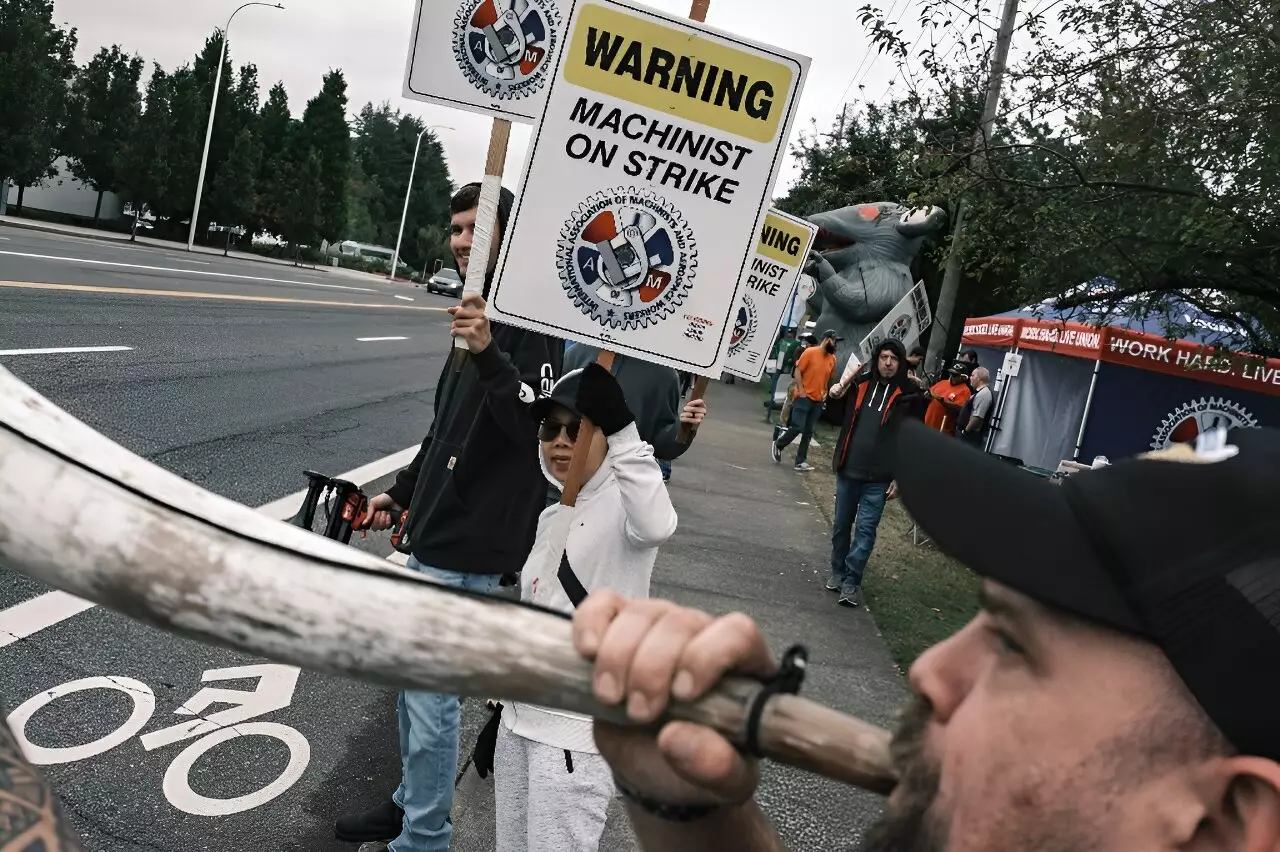Tensions between Boeing and its workforce have reached a boiling point, resulting in a significant walkout by approximately 33,000 employees represented by the International Association of Machinists and Aerospace Workers (IAM). This mass strike, which began on September 13, 2023, follows the rejection of a contract offer deemed insufficient by the workers. The fallout has major repercussions, notably halting production lines for critical aircraft models such as the 737 MAX and the 777. The stakes are high not only for the workers but also for the broader aviation industry and Boeing’s operational capacity.
Recent negotiations have become increasingly tense, with the IAM announcing that discussions with Boeing had “broken off” without reaching a consensus. The union’s website indicated a grim outlook, revealing that there are no scheduled meetings between the two sides to resolve the deadlock. Despite a willingness to continue dialogue, the IAM has been clear that fundamental disagreements over core issues remain. This breakdown highlights the challenges of aligning the interests of a multinational corporation with those of its workforce, collectively represented by the IAM.
Boeing, on its part, has publicly stated its readiness for further discussions and expressed a commitment to rebuilding its relationship with the IAM. However, the company’s optimism has not translated into constructive dialogue, as evidenced by the union’s assertion that significant issues such as pensions and overall compensation have not been adequately addressed.
At the heart of the negotiations lies the contentious issue of pensions. The IAM has pointed to Boeing’s refusal to unfreeze the defined benefit plan as a significant stumbling block. For many employees, the promise of a stable retirement is paramount, and the union’s position reflects a broader concern about long-term financial security. Additionally, striking workers are demanding more than just a raise; they seek enhancements in pay progression and paid time off. Boeing’s initial offer included a 30 percent wage increase and the reinstatement of bonuses, but the IAM deemed these terms insufficient, leading to an impasse.
This situation underscores a larger trend within labor movements in the United States, where employees increasingly demand not just fair wages but also quality benefits and working conditions. The IAM’s stance is representative of a workforce that is unwilling to settle for mere token gestures from corporate giants.
As the negotiations remain stalled, the question looms: what will it take for both parties to reach an agreement? The IAM has indicated openness to mediated discussions, but with a firm stance on essential issues, it remains to be seen if Boeing can meet these demands without incurring substantial operational disruption. As both sides brace for a protracted battle, the implications will reverberate beyond the factory floors, potentially affecting thousands of families, the supply chain, and the stability of Boeing as a leader in the aerospace industry.
The current labor climate favors workers, with many industries witnessing strikes as employees push for better conditions. As both sides weigh their options, it is imperative that they recognize the potential long-term damage of an unresolved conflict, not just for their respective parties, but for the industry as a whole.


Leave a Reply